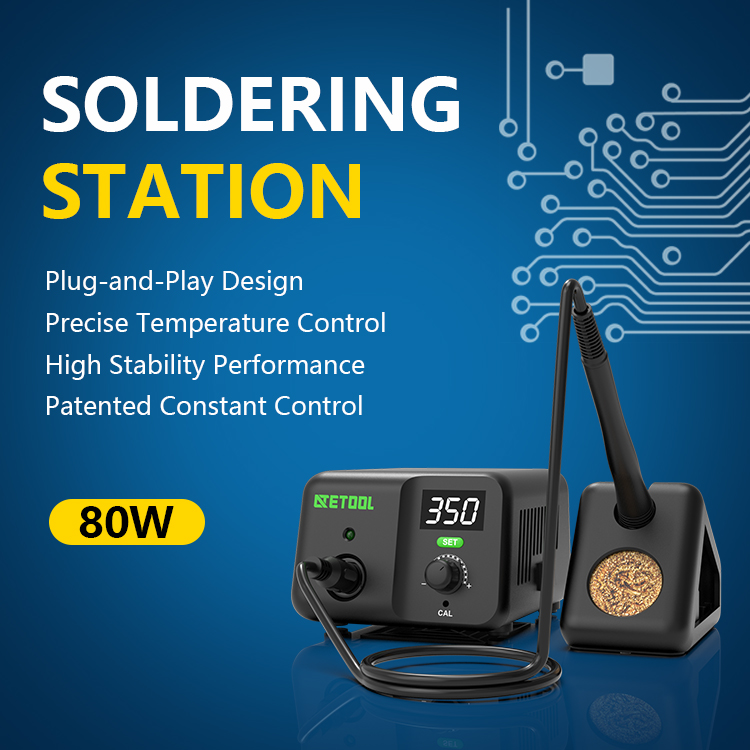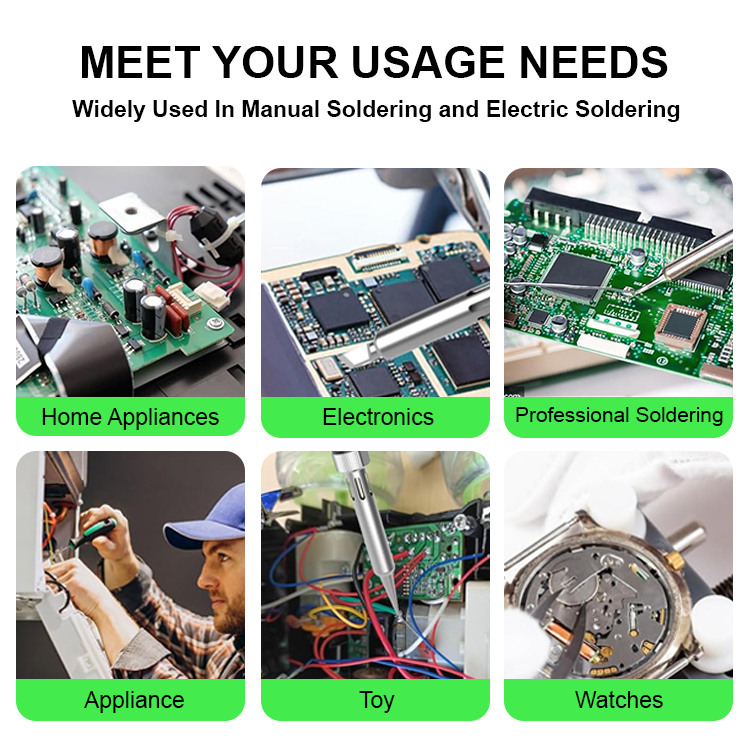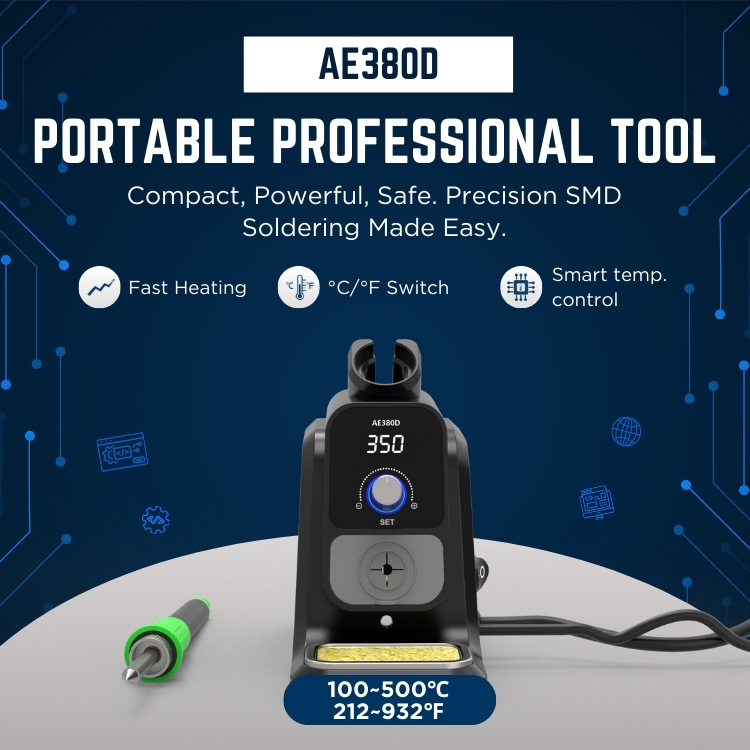
Soldering is more than just a technical process; it's an art form that requires precision, patience, and the right tools. In this article, we'll dive into the world of soldering stations, with a special focus on those manufactured in China, renowned for their quality and affordability.

China has long been a powerhouse in the manufacturing sector, and the soldering station market is no exception. With a global demand for reliable and cost-effective soldering equipment, China's role as a supplier is more significant than ever.
When it comes to soldering stations, one size does not fit all. China offers a variety of options to cater to different needs and preferences.
For those looking for something tailored to their specific requirements, custom soldering stations from China provide the perfect solution.
Similar to custom stations, bespoke options offer a personalized touch, ensuring that every detail meets the user's expectations.
For businesses wanting to establish their brand identity, private label soldering stations allow for unique branding while leveraging China's manufacturing expertise.
White label options are ideal for resellers who want to offer high-quality products without the hassle of manufacturing.
China soldering stations offer a myriad of benefits that make them a popular choice among professionals and hobbyists alike.
The versatility of China soldering stations makes them suitable for a wide range of applications across various industries.

For those who enjoy hands-on projects, a reliable soldering station is essential.
In the field of maintenance and repair, having a dependable soldering station can make all the difference.
China soldering stations are also a staple in educational settings, fostering learning and innovation in STEM fields.
Professionals in various industries rely on high-quality soldering stations for their research and development needs.
Selecting the right soldering station is crucial for any project. Here's what you need to consider.

For businesses looking to stock up, bulk purchasing and wholesale options from China offer significant benefits.
Understanding OEM and ODM services can open up new opportunities for businesses looking to offer unique soldering solutions.
When it comes to importing and exporting, there are several factors to consider to ensure a smooth transaction.
Regulatory Considerations
One of the first steps in importing or exporting soldering stations from China is understanding the regulatory landscape. This includes compliance with international trade laws, safety standards, and certifications required for electronic equipment.
Compliance with International Trade Laws: Importers and exporters must be aware of the trade agreements and tariffs that may affect the cost and logistics of their transactions.
Safety Standards and Certifications: Soldering stations must meet specific safety standards, such as CE marking in the EU or UL certification in the US, to ensure they are safe for use.
Logistics and Supply Chain Management
The logistics involved in importing and exporting can be complex, requiring careful planning and coordination.
Transportation Modes: Deciding between sea, air, or land transportation based on cost, speed, and reliability.
Customs Clearance: Navigating the customs process efficiently to avoid delays and additional costs.
Supply Chain Visibility: Implementing systems that provide real-time updates on the status of shipments to ensure timely delivery.
Quality Control and Inspection
Ensuring the quality of the soldering stations before they leave the factory is crucial to maintaining customer satisfaction and avoiding costly returns.
Factory Audits: Conducting audits to assess the manufacturing processes and quality control measures in place.
Pre-shipment Inspections: Performing inspections to verify that the products meet the agreed-upon specifications and quality standards.
Payment and Financing Options
The financial aspects of importing and exporting, including payment terms and financing options, can significantly impact the success of a transaction.
Letters of Credit: Utilizing letters of credit to secure transactions and provide financial protection.
Financing Options: Exploring financing options to manage cash flow and investment in inventory.
Risk Management
Identifying and mitigating potential risks is essential for the success of import and export operations.
Currency Fluctuations: Managing the risk of currency exchange rate changes that can affect profit margins.
Political and Economic Factors: Staying informed about political and economic developments that could impact trade.
Best Practices for Importing and Exporting
Adopting best practices can help businesses streamline their operations and minimize potential issues.
Building Strong Relationships: Establishing long-term relationships with reliable suppliers and freight forwarders.
Continuous Improvement: Regularly reviewing and improving processes to adapt to changes in the market and regulations.
As we wrap up our guide, let's look at the current state of the China soldering station market and what the future might hold.
Contact: Karen
Phone: (0086) 755 2340 8754 ext. 807
E-mail: atetool@atetool.com.cn
Add: 5F, 1-2# Building, Tongfuyu Industrial Zone, Aiqun Rd, Shiyan Subdistrict, Bao'an, Shenzhen, 518108, China